The first real enemy I came across in Zenith was a horde of giant spiders. In a fantasy RPG, massive arachnids aren’t uncommon monsters to encounter, and are something of a cornerstone when it comes to game worlds full of magical adventures. What I didn’t expect, however, was for the spiders to start singing.
You read that correctly. The spiders were singing. I, in the role of Zenith’s protagonist, Argus, diverted the attention of my would-be captors – a contingent of enemy elves – on a mountain road by letting them be ambushed by giant spiders that sang in a perfect tenor harmony as they attacked.
This singing spider situation sets the tone for my experience playing Zenith, an Indie Action RPG released by Infinigon Games on September 20th. Described as “A golden-era style action RPG soaked in humor, parody and pop culture reference,” the game draws from common fantasy tropes present in the ARPG genre and goes to work deconstructing them using a deeply irreverent sense of humor. What begins with a choir of spiders carries through in every scene, interaction, and dialogue I experienced during the first hour of this game’s creative interrogation of what is arguably the most trope-heavy genre in video game history.
Zenith begins by setting up a typical fantasy universe: the opening cutscene involves Argus, a human mage, being taken captive by a group of elves as a prisoner of war. The first indication of plot involves a stolen religious codex, a war, and a quest to unlock secrets in an ancient crypt. The elves threaten Argus with a violent death if he does not cooperate, our hero distracts the elves and escapes, and the game truly begins as he attempts to recover the stolen codex from the elf captain.
These standard genre conventions are turned on their head almost immediately, and not just by the presence of spiders who attack while also performing like a barbershop quartet. While satire and humor have a strong presence as a sub-field of fantasy in fictional works, their place in a typical fantasy RPG setting serves primarily as a way of relieving dramatic tension. Television shows like Game of Thrones and video games like Diablo or Dragon Age will contain humorous elements to provide levity to grim storylines, but they maintain their serious tone throughout their overarching narrative. Zenith goes in a different direction by creating a world rooted in humor, where the driving force is comedic deconstruction instead of epic life-or-death battles against the forces of evil, or even dark and gritty medieval realism.
Zenith’s humorous view of action adventure in a fantasy setting appears most prominently through the eyes of the game’s protagonist. Argus Windell is a grizzled adventuring veteran whose snark-laden words and overt cynicism makes him come across clearly as a man who has both seen it all before and has gotten too old for it. Heroes of fantasy fiction are traditionally just that: heroes, those who go into battle against the forces of darkness, willingly or unwillingly, with a firm belief in their cause. Argus Windell is less of a Frodo Baggins of Middle Earth or a Grey Warden of Thedas and more of a Roger Murtaugh of Lethal Weapon kind of character. His reaction to monsters is more exasperation than fear, more sarcastic annoyance than dedication, and as the player character, his reactions set the tone for the player’s reactions as they explore Zenith’s world.
No fantasy trope is spared in Zenith’s opening area, the game examining not only the impracticality of being given tutorials and advice through conversations with various NPCs, but the illogical presence of adventuring gear in random containers. The initial zone, traditionally a game’s tutorial space, leans on the fourth wall by turning it into a tourist trap for visitors looking for an ‘authentic adventuring experience’, complete with randomly placed chests containing adventuring gear the reader is encouraged to return after use so other adventurers can have the Full Authentic Experience of an adventure. In giving the game a tutorial, Zenith takes the opportunity to examine the nature of fantasy game tutorials and adventures, taking jabs at everything from awkward small talk with strangers to how easy it would be to replace the liquid in bottles of health potion with poison to take care of persistent meddling adventurers.
None of these jokes or satirical points exist in a vacuum in this game, because Zenith isn’t just looking to hang lampshades on the tropes of RPGs past. Infinigon Games demonstrates their love of the action RPG genre by humorously unpacking the common elements of these games and then creating a rich world with even richer characters to populate it. Players are introduced to the politics of the world through Argus’s interaction with the elves, who are members of a group ominously called the Hegemony, and the presence of a Triumvirate-style leadership system that includes royalty, theocracy, and magic. Each element is introduced in medias res, delivering backstory without dragging down the primary narrative through fast-paced, well-written dialogue. The presence of technology not typically seen in a fantasy setting further sets Zenith apart from its ARPG roots, making use of technology more readily associated with science fiction in the foreground of the narrative.
This is another way to live up to the promise of providing pop culture references and timely comedy, as Argus’s colleague-slash-significant other, Brekka, attempts to control her magical construct Golem using commands more commonly associated with computers. Most significantly, it provides a workaround for some common criticisms of the implausibility or impracticality of a fantasy setting. After all, why attempt to unlock an ancient temple with a passphrase from an equally ancient codex when the magically-powered flying ship known as the Acumen can blast the door off its hinges?
Zenith isn’t a perfect game by any stretch. As a player of other RPGs my experience with game controls have led me to expect certain things of fantasy game mechanics, and some of Zenith’s controls led to confusion on my part, particularly in the organization of inventory and the unintuitive buy-and-sell mechanics. The game could also do more with shaking up common fictional tropes, in that our protagonist, despite his wit and vim, is still a white heterosexual male in a realm dominated by white heterosexual males. As far as bones to pick go, however, these are small, and warrant further examination beyond what I can uncover in a single hour of gameplay. I’m eager to see what will be addressed the further into the story I go.
Zenith does not just take note of typical fantasy RPG tropes, it unearths them, displays them, and then weaves them into something new that manages to hearken back to adventure games of old while simultaneously breathing new life into the genre. Making fun of a trope is easy, but using that humor to create something new is the kind of innovation in storytelling gamers want to see alongside advances in gaming technology.
I expect more from my games in every genre, and fantasy is no different. I think that Zenith makes use of humor and satire to deconstruct games in such a way that demonstrates the potential games have to critically interrogate genre tropes that have become the fictional status quo. Once a genre has been around long enough, creators have the option to begin remixing and reinventing it to create something new in a sea of tired repetition. What I’ve played of Zenith so far gives me hope for a new generation of fantasy action RPGs that take what has come before and showed us how we can continue to evolve and improve stories normally hampered by genre conventions.
Zenith is available on the PS4 for $19.99 and Steam for $11.99 (until September 27th, when it goes back up to $14.99), and whether you’re feeling nostalgic for fantasy, eager for some laughs, or pondering the way games can uproot the genre-bound status quo (like me), I recommend giving it a try.
 Lee Hibbard is a Graduate Student at Purdue University, where he is working towards a PhD in Rhetoric and Composition. He has been an avid gamer since his parents got him Pokemon when he was ten, and other favourite games in his library include Mass Effect, Borderlands 2, Portal, Bioshock, and Diablo. His other research interests include new media texts, fandom communities, digital rhetorics, queer studies, and identity formation, and a lot of his interest intersects with his experiences as a queer transgender man. When he’s not in the classroom or playing videogames he can be found lurking in the darkest depths of the internet while drinking too much coffee and ranting about fictional characters.
Lee Hibbard is a Graduate Student at Purdue University, where he is working towards a PhD in Rhetoric and Composition. He has been an avid gamer since his parents got him Pokemon when he was ten, and other favourite games in his library include Mass Effect, Borderlands 2, Portal, Bioshock, and Diablo. His other research interests include new media texts, fandom communities, digital rhetorics, queer studies, and identity formation, and a lot of his interest intersects with his experiences as a queer transgender man. When he’s not in the classroom or playing videogames he can be found lurking in the darkest depths of the internet while drinking too much coffee and ranting about fictional characters.

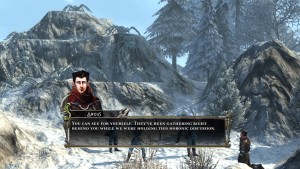
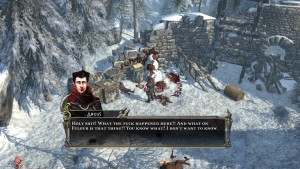
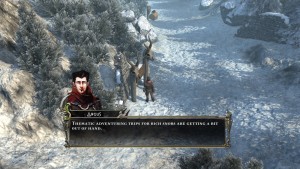
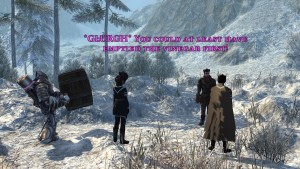
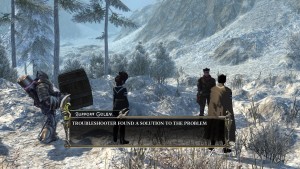
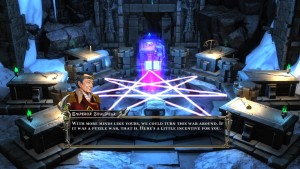
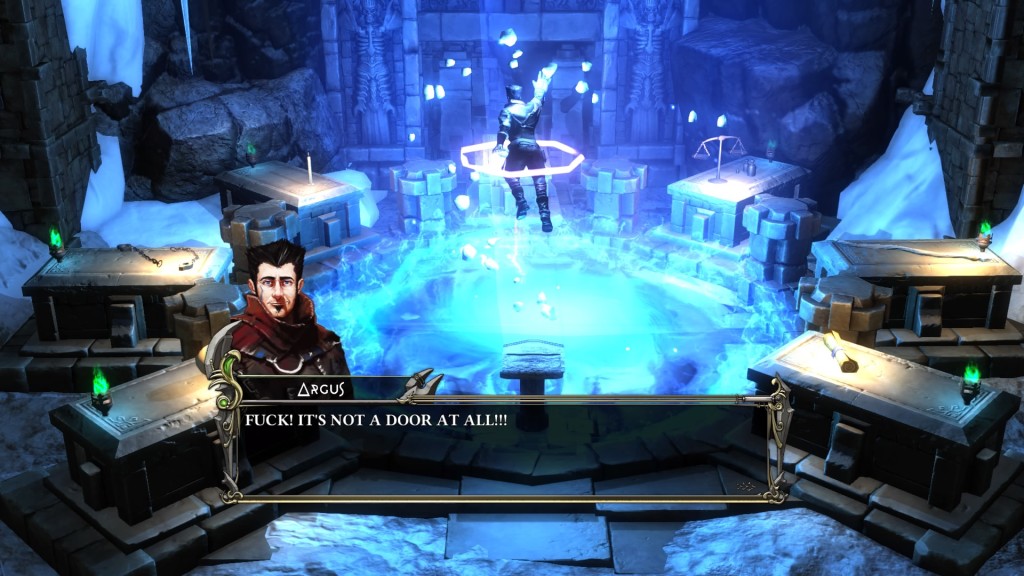




One thought on “And the Spiders Sang: Zenith (Power Hour Review)”
this game is freaking awesome. If you take Final Fantasy games, and Baldurs Gate Dark Alliance and mix them all together into a slapstick comedy you get Zenith. There should be more games like this. This game makes fun of all the popular RPG out there and spins it into a great story. From mocking final fantasy characters to an elder scrolls reference this game does it all. Although controls on PC are a bit bad, the story and comedy totally make up for it.
I give this game a 9/10, would be a 10 if combat controls were easier.